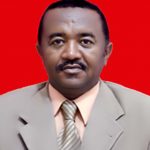This study examines the role of foreign direct investment (FDI) in advancing peacebuilding in Sudan via promoting youth employability using the autoregressive distributed lag (ARDL) model and time series data from 1992 to 2023. The findings indicate that both FDI and financial development substantially decrease youth unemployment rates over the long run. Conversely, the findings reveal that elevated inflation rates lead to higher youth unemployment over time. Furthermore, we find that the prevalent rates of youth unemployment considerably hamper peacebuilding efforts both in the short and long run. The primary conclusion is that augmenting FDI inflows can facilitate peacebuilding initiatives within the Sudanese setting by broadening employment prospects for unemployed youth. Accordingly, by harnessing FDI inflows strategically, Sudan can create a more inclusive labor market that not only provides employment opportunities but also fosters stability and peace.
ملخص
تهدف هذه الدراسة إلى اختبار دور الاستثمار الأجنبي المباشر في تعزيز بناء السلام في السودان من خلال الحد من البطالة وسط الشباب السودانيين وذلك باستخدام نموذج الانحدار الذاتي للفجوات الموزعة وبيانات سلاسل زمنية تمتد من 1992 إلى 2023. تشير نتائج الدراسة إلى أن الاستثمار الأجنبي المباشر والتنمية المالية يقللان بشكل كبير من معدلات البطالة وسط الشباب في المدى الطويل. على النقيض من ذلك، أثبتت النتائج أن معدلات التضخم العالية تزيد من معدلات بطالة الشباب في المدى الطويل. بالإضافة إلى ذلك، تشير النتائج إلى أن تزايد معدلات البطالة وسط الشباب يثبط جهود بناء السلام في البلاد على المديين القصير والطويل. الاستنتاج الأساسي لهذا التحليل هو أن زيادة تدفقات الاستثمار الأجنبي المباشر يمكن أن تعزز مبادرات بناء السلام داخل البيئة السودانية وذلك من خلال خلق فرص العمل للشباب العاطلين. عليه، من خلال صياغة استراتيجية قومية للاستفادة من تدفقات الاستثمار الأجنبي المباشر، يمكن خلق سوق عمل أكثر شمولاً لا يقتصر دوره في توفير فرص العمل للشباب فحسب، بل أيضًا يعزز الاستقرار والسلام في السودان.

Authors
Mohammed Elhaj Mustafa Ali
Assistant Professor, University of Kassala


